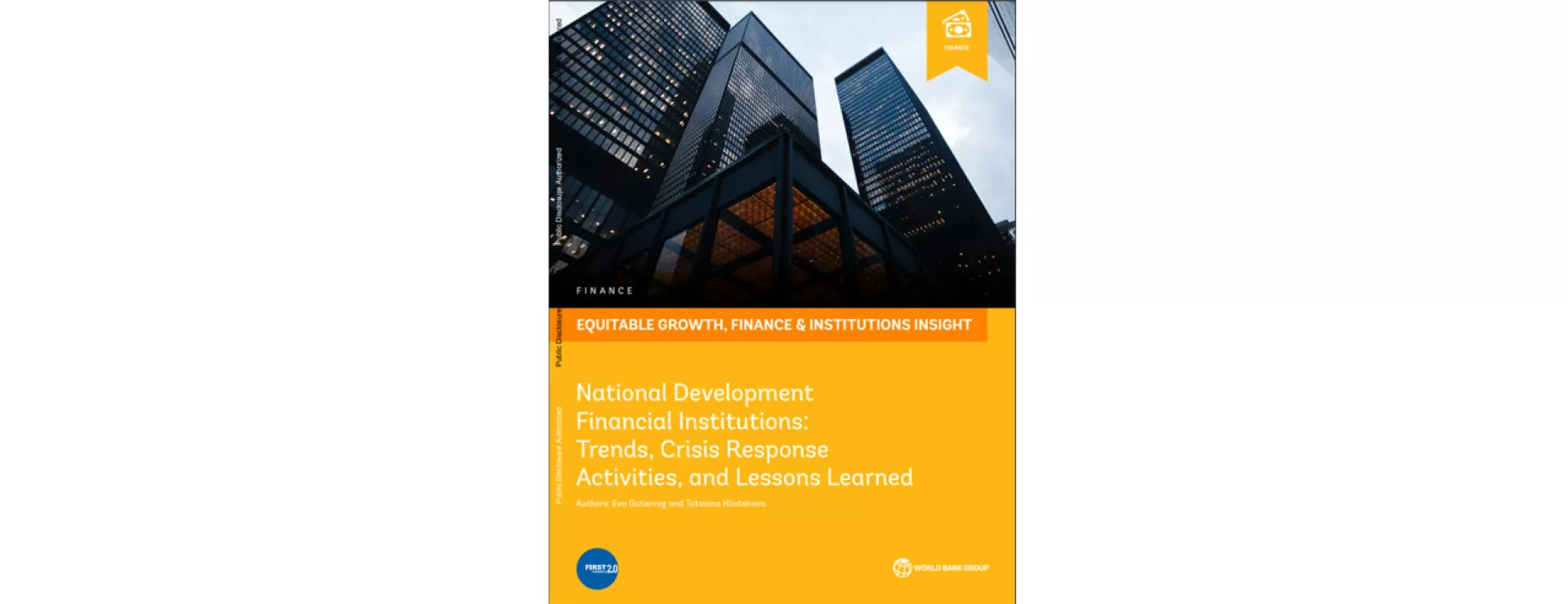National Development Financial Institutions : Trends, Crisis Response Activities, and Lessons Learned


In recent years, there has been renewed interest in national development financial institutions (NDFIs). NDIs can act countercyclically, fill market gaps, and catalyze private finance for developmental goals including through demonstration effects and market creation. However, NDFI interventions can also be controversial. Critics cite complaints of competition with commercial banks, crowding-out of private investment, and support to objectives of political elites, rather than addressing sustainable development objectives. Some have been criticized as inefficient and mismanaged.
This report distills lessons learn from efficient NDFIs by reviewing the arrangements under which they operate. A review of NDFIs COVID interventions is also conducted.